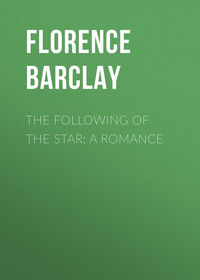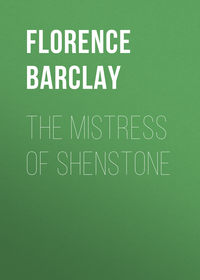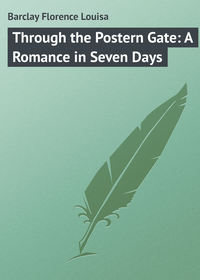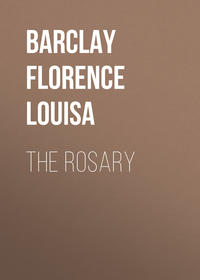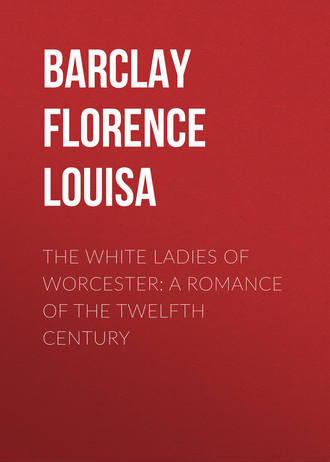 полная версия
полная версияThe White Ladies of Worcester: A Romance of the Twelfth Century
"At last they brought me back to camp, delirious and dying. My cousin 'Frida, there biding her time, nursed me back to life, and sought to win for herself (I shame to say it) the love which thou hadst flouted. I need not tell thee, my cousin 'Frida failed. The Queen herself as good as bid me wed her favourite Lady. The Queen herself had to discover that she could command an English soldier's life, but not his love.
"Back in the field again, I found myself one day, cut off, surrounded, hewn down, taken prisoner; but by a generous foe.
"Thereafter followed years of much adventure; escapes, far distant wanderings, strange company. Many months I spent in a mountain fastness with a wise Hebrew Rabbi, who taught me his sacred Scriptures; going back to the beginning of all things, before the world was; yet shrewd in judgment of the present, and throwing a weird light forward upon the future. A strange man; wise, as are all of that Chosen Race; and a faithful friend. He did much to heal my hurt and woo me back to sanity.
"Later, more than a year with a band of holy monks in a desert monastery, high among the rocks; good Fathers who believed in Greek and Latin as surest of all balsams for a wounded spirit, and who made me to become deeply learned in Apostolic writings, and in the teachings of the Church. But, for all their best endeavours, I could not feel called to the perpetual calm of the Cloister. We are a line of fighters and hunters, men to whom pride of race and love of hearth and home, are primal instincts.
"Thus, after many further wanderings and much varying adventure, having by a strange chance heard news of the death of my father, and that my mother mourned. In solitude, the opening of this year found me landed in England—I who, by most, had long been given up for dead; though Martin Goodfellow, failing to find trace of me in Palestine, had gone back to Cumberland, and staunchly maintained his belief that I lived, a captive, and should some day make my escape, and return.
"I passed with all speed to our Castle on the moors, knowing a mother's heart waited here, for mothers never cease to watch and hope. And, sure enough, as I rode up, the great doors flew wide; the house waited its master; the mother was on the threshold to greet her son. Aye! It was good to be at home once more—even in the land where my woman was bearing children to another man.
"We spent a few happy days, I and my mother, together. Then—the joy of hope fulfilled being sometimes a swifter harbinger to another world than the heaviest load of sorrow—she passed, without pain or sickness, smiling, in her sleep; she passed—leaving my home desolate indeed.
"Not having known of my betrothal to thee, because of the old feud between our families, and my reluctance to cross her wish that I should wed Alfrida, thy name was not spoken between us; but I learned from her that my cousin 'Frida lay dying at her manor, nigh to Chester, of some lingering disease contracted in eastern lands."
"With the first stirrings of Spring in forest and pasture, I felt moved to ride south to the Court, and report my return to the King; yet waited, strangely loath to go abroad where any turn of the road might bring me face to face with Humphry. I doubted, should we meet, if I could pass, without slaying him, the man who had stolen my betrothed from me. So I stayed in my own domain, bringing things into order, working in the armoury, and striving by hard exercise to throttle the grim demon of despair.
"April brought a burst of early summer; and, on the first day of May, I set off for Windsor.
"Passing through Carnforth on my way, I found the town keeping high holiday. I asked the reason, and was told of a Tourney now in progress in the neighbourhood, to which the Earl had that morning ridden in state, accompanied by his Countess, who indeed was chosen Queen of Beauty, and was to sit enthroned, attended by her little daughter, two tiny sons acting as pages.
"A sudden mad desire came on me, to look upon thy face again; to see thee with the man who stole thee from me; with the children, who should have been mine own.
"Ten minutes later, I rode on to the field. Pushing in amid the gay crowd, I seemed almost at once to find myself right in front of the throne.
"I saw the Queen of Beauty, in cloth of gold. I saw the little maiden and the pages in attendance. I saw Humphry, proud husband and father, beside them. All this I saw, which I had come to see. But—the face of Humphry's Countess was not thy face! In that moment I knew that, for seven long years, I had been fooled!
"I started on a frenzied quest after the truth, and news of thee.
"Thy sister Eleanor had died the year before. To thy beautiful castle and lands, so near mine own, Eleanor's son had succeeded, and ruled there in thy stead. He being at Court just then, I saw him not, nor could I hear direct news of thee, though rumour said a convent.
"Then I remembered my cousin, Alfrida, lying sick at her manor in Chester. To her I went; and, walking in unannounced—I, whom she had long thought dead—I forced the truth from her. The whole plot stood revealed. She and Eleanor had hatched it between them. Eleanor desiring thy lands for herself and her boy, and knowing children of thine would put hers out of succession; Alfrida—it shames me to say it—desiring for herself, thy lover.
"The messenger who brought the letters was bribed to give details of thy supposed marriage. On his return to England, my letters to thee and to Humphry he handed to Eleanor; also a lying letter from 'Frida, telling of her marriage with me, with the Queen's consent and approval, and asking Eleanor to break the news to thee. The messenger then mingled with thy household, describing my nuptials in detail, as, when abroad, he had done thine. Hearing of this, my poor Love did even as I had done, sent for him, questioned him, heard the full tale he had to tell, and saw, alas! no reason to misdoubt him.
"By the way, my cousin 'Frida knew where to lay her hand upon that clerkly fellow. Therefore we sent for him. He came in haste to see the Lady Alfrida, from whom, during all the years, he had extorted endless hush-money.
"I and my men awaited him.
"He had fattened on his hush-money! He was no longer lean and out at elbow.
"He screeched at sight of me, thinking me risen from the dead.
"He screeched still louder when he saw the noose, flung over a strong bough.
"We left him hanging, when we rode away. That Judas kind will do the darkest deeds for greed of gain. The first of the tribe himself shewed the way by which it was most fitting to speed them from a world into which it had been good for them never to have been born.
"From Alfrida I learned that, as Eleanor had foreseen, thy grief at my perfidy drove thee to the Cloister. Also that thy Convent was near Worcester.
"To Worcester I came, and made myself known to the Lord Bishop, with whom I supped; and finding him most pleasant to talk with, and ready to understand, deemed it best, in perfect frankness, to tell him the whole matter; being careful not to mention thy name, nor to give any clue to thy person.
"Through chance remarks let fall by the Bishop while giving me the history of the Order, I learned that already thou wert Prioress of the White Ladies. 'The youngest Prioress in the kingdom,' said the Bishop, 'yet none could be wiser or better fitted to hold high authority.' Little did he dream that any mention of thee was as water to the parched desert; yet he talked on, for love of speaking of thee, while I sat praying he might tell me more; yet barely answering yea or nay, seeming to be absorbed in mine own melancholy thoughts.
"From the Bishop I learned that the Order was a strictly close one, and that no man could, on any pretext whatsoever, gain speech alone with one of the White Ladies.
"But I also heard of the underground way leading from the Cathedral to the Convent, and of the daily walk to and from Vespers.
"I went to the crypt, and saw the doorway through which the White Ladies pass. Standing unseen amid the many pillars, I daily watched the long line of silent figures, noted that they all walked veiled, with faces hidden, keeping a measured distance apart. Also that several were above usual height. Then I conceived the plan of wearing the outer dress, and of stepping in amongst those veiled figures just at the foot of the winding stair in the wall, leading down from the clerestory to the crypt. I marked that the nun descending, could not keep in view the nun in front who had just stepped forth into the crypt; while she, moving forward, would not perceive it if, slipping from behind a pillar, another white figure silently joined the procession behind her. Once within the Convent, I trusted to our Lady to help me to speech alone with thee; and our blessèd Lady hath not failed me.
"Now I have told thee all."
With that the Knight left speaking; and, after the long steady recitation, the ceasing of his voice caused a silence which, seemed, to hold the very air suspended.
Not once had the Prioress made interruption. She had sat immovable, her eyes upon his face, her hands gripping the arms of her chair. Long before the tale was finished her sad eyes had overflowed, the tears raining down her cheeks, and falling upon the cross at her breast.
When he had told all, when the deep, manly voice—now resolute, now eager, now vibrant with fierce indignation, yet tender always when speaking of her—at last fell silent, the Prioress fought with her emotion, and mastered it; then, so soon as she could safely trust her voice, she spoke.
CHAPTER XII
ALAS, THE PITY OF IT!
At length the Prioress spoke.
"Alas," she said, "the pity of it! Ah, the cruel, cruel pity of it!"
Her voice, so sweet and tender, yet so hopeless in the unquestioning finality of its regret, struck cold upon the heart of the Knight.
"But, my belovèd, I have found thee," he said, and dropping upon one knee at her feet, he put out his hands to cover both hers. But the Prioress was too quick for him. She hid her hands beneath her scapulary. The Knight's brown fingers closed on the lions' heads.
"Touch me not," said the Prioress.
The Knight flushed, darkly.
"You are mine," he said. "Mine to have and to keep. During these wretched years we have schooled ourselves each to think of the other as wedded. Now we know that neither has been faithless. I have found thee, my belovèd, and I will not let thee go."
"Hugh," said the Prioress, "I am wedded. You come too late. Saw you not the sacred ring upon my hand? Know you not that every nun is the bride of Christ?"
"You are mine!" said the Knight, fiercely; and he laid his great hand upon her knee.
From beneath her scapulary, the Prioress drew the dagger.
"Before I went to the cloister door," she said, "I took this from its hiding-place, and put it in my girdle. I guessed I had a man to deal with; though, Heaven knows, I dreamed not it was thou! But I tell thee, Hugh, if thou, or any man, attempt to lay defiling touch upon any nun in this Priory—myself, or another—I strike, and I strike home. This blade will be driven up to the hilt in the offender's heart."
The Knight rose to his feet, stepped to the window and leaned, with folded arms, against the wall.
"Put back thy weapon," he said, sternly, "into its hiding-place. No other man is here; yet, should another come, my sword would well suffice to guard thine honour, and the honour of thy nuns."
She looked at his dark face, scornful in its pain; then went at once, obedient, to the secret panel.
"Yes, Hugh," she said. "That much of trust indeed I owe thy love."
As she placed the dagger in the wall and closed the panel, something fell from her, intangible, yet real.
For so long, she had had to command. Bowing, kneeling, hurrying women flew to do her behests. Each vied with the others to magnify her Office. Often, she felt lonely by reason of her dignity.
And now—a man's dark face frowned on her in scornful anger; a man's stern voice flung back her elaborate threat with a short command, which disarmed her, yet which she obeyed. Moreover, she found it strangely sweet to obey. Behind the sternness, behind the scornful anger, there throbbed a great love. In that love she trusted; but with that love she had to deal, putting it from her with a finality which should be beyond question.
Yet the "Prioress" fell from her, as she closed the panel. It was the Woman and the Saint who moved over to the window and stood beside the Knight, in the radiance of a golden sunset after storm.
There was about her, as she spoke, a wistful humbleness; and a patient sadness, infinitely touching.
"Sir Hugh," she said, "my dear Knight, whom I ever found brave and tender, and whom I now know to have been always loyal and true—there is no need that I should add a word to your recital. The facts you wrung from Alfrida—God grant forgiveness to that tormented heart—are all true. Believing the messenger, not dreaming of doubting Eleanor, my one thought was to hide from the world my broken heart, my shattered pride. I hastened to offer to God the love and the life which had been slighted by man. I confess this has since seemed to me but a poor second-best to have brought to Him, Who indeed should have our very best. But, daily kneeling at His Feet, I said: 'A broken and a contrite heart, Lord, Thou wilt not despise.' My heart was 'broken,' when I brought it here. It has been 'contrite' since. And well I know, although so far from worthy, it has not been despised."
She lifted her eyes to the golden glory behind the battlements of purple cloud.
"Our blessèd Lady interceded," she said, simply; "she, who understands a woman's heart."
The Knight was breathing hard. The folded arms rose and fell, with the heaving of his chest. But he kept his lips firm shut; though praying, all the while, that our Lady might have, also, some understanding of the heart of a man!
"I think it right that you should know, dear Hugh," went on the sad voice, gently; "that, at first, I suffered greatly. I spent long agonizing nights, kneeling before our Lady's shrine, imploring strength to conquer the love and the longing which had become sin."
A stifled groan broke from the Knight.
The golden light shone in her steadfast eyes, and played about her noble brow.
"And strength was given," she said, very low.
"Mora!" cried the Knight—She started. It was so long since she had heard her own name—"You prayed for strength to conquer, when you thought it sin; just as I rode out to meet the foe, to fight and slay, and afterward wrestled with unknown tongues, doing all those things which were hardest, while striving to quench my love for you. But when I knew that no other man had right to you or ever had had right, why then I found that nothing had slain my love, nor ever could. And Mora, now you know that I am free, is your love dead?"
She clasped her hands over the cross at her breast. His voice held a deep passion of appeal; yet he strove, loyally, to keep it calm.
"Listen, Hugh," she said. "If, thinking me faithless, you had turned for consolation to another; if, though you brought her but your second best, you yet had won and wed her; now, finding after all that I had not wedded Humphry, would you leave your bride, and try to wake again your love for me?"
"You seek to place me," he said, "in straits in which, by mine own act, I shall never be. Loving you as I love you, I could wed no other while you live."
She paled, but persisted.
"But, if, Hugh? If?"
"Then, no," he said. "I should not leave one I had wed. But–"
"Hugh," she said, "thinking you faithless, I took the holy vows which wedded me to Heaven. How can I leave my heavenly Bridegroom, for love of any man upon this earth?"
"Not 'any man,'" he answered; "but your betrothed, returned to claim you; the man to whom you said as parting words: 'Maid or wife, I am all thine own; thine and none other's forever.' Ah, that brings the warm blood to thy cheek! Oh, my Heart's Life, if it was true then, it is true still! God is not a man that he should lie, or rob another of his bride. If I had wed another woman, I should have done that thing, honestly believing thee the wife of another man. But, all these years, while thou and I were both deceived, He, Who knoweth all, has known the truth. He knew thee betrothed to me. He heard thee say, upon the battlements, when last we stood together: 'God knows, I am all thine own.' He knew how, when I thought I had lost thee, I yet lived faithful to the pure memory of our love. The day thy vows were made, He knew that I was free, and thou, therefore, still pledged to me. Shall a man rob God? Ay, he may. But shall God rob a man? Nay, then, never!"
She trembled, wavered; then fled to the shrine of the Virgin, kneeling with hands outstretched.
"Holy Mother of God," she sobbed, "teach him that I dare not do this thing! Shew him that I cannot break my vows. Help him to understand that I would not, if I could."
He followed, and kneeled beside her; his proud head bent; his voice breaking with emotion.
"Blessèd Virgin," he said. "Thou who didst dwell in the earthly home at Nazareth, help this woman of mine to understand, that if she break her troth to me, holding herself from me, now when I am come to claim her, she sends me forth to an empty life, to a hearth beside which no woman will sit, to a home forever desolate."
Together they knelt, before the tender image of Mother and Child; together, yet apart; he, loyally mindful not so much as to brush against a fold of her veil.
The dark face, and the fair, were lifted, side by side, as they knelt before the Madonna. For a while so motionless they kneeled, they might have been finely-modelled figures; he, bronze; she, marble.
Then, with a sudden movement, she put out her right hand, and caught his left.
Firmly his fingers closed over hers; but he drew no nearer.
Yet as they knelt thus with clasped hands, his pulsing life seemed to flow through her, undoing, in one wild, sweet moment, the work of years of fast and vigil.
"Ah, Hugh," she cried, suddenly, "spare me! Spare me! Tempt me not!"
Loosing her hand from his, she clasped both upon her breast.
The Knight rose, and stood beside her.
"Mora," he said, and his voice held a new tone, a tone of sadness and solemnity; "far be it from me to tempt you. I will plead with you but once again, in presence of our Lady and of the Holy Child; and, having so done, I will say no more.
"I ask you to leave this place, which you would never have entered had you known your lover was yours, and needing you. I ask you to keep your plighted word to me, and to become my wife. If you refuse, I go, returning not again. I leave you here, to kneel in peace, by night or day, before the shrine of the Madonna. But—I bid you to remember, day and night, that because of this which you have done, there can be no Madonna in my home. No woman will ever sit beside my hearth, holding a little child upon her knees.
"You leave to me the crucifix—heart broken, love betrayed; feet and hands nailed to the wood of cruel circumstance; side pierced by spear of treachery—lonely, forsaken. But you take from me all the best, both in life and in religion; all that tells of love, of joy, of hope for the years to come.
"Oh, my belovèd, weigh it well! There are so many, with a true vocation, serving Heaven in Convent and in Cloister. There is but one woman in the whole world for me. In the sight of Heaven, nothing divides us. Convent walls now stand between—but they were built by man, not God. Vows of celibacy were not meant to sunder loving hearts. Mora? . . . Come!"
The Prioress rose and faced him.
"I cannot come," she said. "That which I have taught to others, I must myself perform. Hugh, I am dead to the world; and if I be dead to the world, how can I live to you? Had I, in very deed, died and been entombed, you would not have gone down into the vaults and forced my resting-place, that you might look upon my face, clasp my cold hand, and pour into deaf ears a tale of love. Yet that is what, by trick and artifice, you now have done. You come to a dead woman, saying; 'Love me, and be my wife.' She must, perforce, make answer: 'How shall I, who am dead to the world, live any longer therein?' Take a wife from among the Living, Hugh. Come not to seek a bride among the Dead."
"Mother of God!" exclaimed the Knight, "is this religion?"
He turned to the window, then to the door. "How can I go from here?"
The stifled horror in his voice chilled the very soul of the woman to whom he spoke. She had, indeed at last made him to understand.
"I must get you hence unseen," she said. "I dare not pass you out by the Convent gate. I fear me, you must go back the way you came; nor can you go alone. We hold the key to unlock the door leading from our passage into the Cathedral crypt. I will now send all the nuns to the Refectory. Then I myself must take you to the crypt."
"Can I not walk alone," asked the Knight, brusquely; "returning you the key by messenger?"
"Nay," said the Prioress, "I dare run no risks. So quickly rumours are afloat. To-morrow, this strange hour must be a dream; and you and I alone, the dreamers. Now, while I go and make safe the way, put you on again the robe and hood. When I return and beckon, follow silently."
The Prioress passed out, closing the door behind her.
CHAPTER XIII
"SEND HER TO ME!"
The Prioress stood for a moment outside the closed door. The peaceful silence of the passage helped her to the outward calm which must be hers before she could bring herself to face her nuns.
Moving slowly to the farther end, she unlocked the cell of Sister Mary Seraphine, feeling a shamed humility that she should have made so sure she had to deal with "Wilfred," and have thought such scorn of him and Seraphine. Alas! The wrong deeds of those they love, oft humble the purest, noblest spirits into the soiling dust.
Next, the Prioress herself rang the Refectory bell.
The hour for the evening meal was long passed; the nuns hastened out, readily.
As they trooped toward the stairs leading down to the Refectory, they saw their Prioress, very pale, very erect, standing with her back to the door of her chamber.
Each nun made a genuflexion as she passed; and to each, the Prioress slightly inclined her head.
To Sister Mary Rebecca, who kneeled at once, she spoke: "I come not to the meal this evening. In the absence of Mother Sub-Prioress, you will take my place."
"Yes, Reverend Mother," said Sister Mary Rebecca, meekly, and kissed the hem of the robe of the Prioress; then rising, hastened on, charmed to have a position of authority, however temporary.
When all had passed, the Prioress went into the cloisters, walked round them; looked over into the garden, observing every possible place from which prying eyes might have sight of the way from the passage to the crypt entrance. But the garden, already full of purple shadows, was left to the circling swifts. The robin sang an evening song from the bough, of the pieman's tree.
The Prioress returned along the passage, looking into every cell. Each door stood open wide; each cell was empty. The sick nuns were on a further passage, round the corner, beyond the Refectory stairs. Yet she passed along this also, making sure that the door of each occupied cell was shut.
Standing motionless at the top of the Refectory steps, she could hear the distant clatter of platters, the shuffling feet of the lay-sisters as they carried the dishes to and from the kitchens; and, above it all, the monotonous voice of Sister Mary Rebecca reading aloud to the nuns while they supped.
Then the Prioress took down one of the crypt lanterns and lighted it.
* * * * * *Meanwhile the Knight, left alone, stood for a few moments, as if stunned.
He had played for a big stake and lost; yet he felt more unnerved by the unexpected finality of his own acquiescence in defeat, than by the firm refusal which had brought that defeat about.
It seemed to him, as he now stood alone, that suddenly he had realised the extraordinary detachment wrought by years of cloistered life. Aflame with love and longing he had come, seeking the Living among the Dead. It would have been less bitter to have knelt beside her tomb, knowing the heart forever still had, to the last, beat true with love for him; knowing the dead arms, lying cold and stiff, had he come sooner, would have been flung around him; knowing the lips, now silent in death, living, would have called to him in tenderest greeting.


